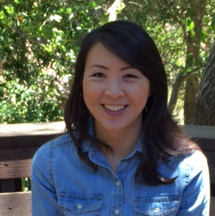 Parent Support of Student Assessments
Parent Support of Student Assessments
This blog is a parallel commentary from the parent perspective on Mary Ann Burke’s January 11, 2022 post “How Students Own Their Learning Assessments” from her series Student Engagement Assessment: Strategies to Empower All Learners.
What Do Student Learning Assessments Look Like?
When a classroom teacher includes student choice for learning assessments, it can take on many different forms. Often times, they will tend to be project-based assessments where students have full control over demonstrating and evaluating their learning. Here are some examples of learning assessments that might be assigned by your child’s teacher:
- A history research project using both primary and secondary sources to learn more about the immigration story in the family.
- A science project that demonstrates the effective application of the scientific method.
- A cross-curricular Language Arts and Physical Education project to develop scripts for a PSA (Public Service Announcement) campaign regarding physical health or mental health issues.
- A smart-water garden design that employs the mathematical computations to find area of landscaping, find plants and other organic materials needed in cubic feet, and calculate the cost of materials to stay within a budget.
What Are The Components Of Student Owned Assessments?
- After learning about a concept or theme in class, the teacher will assign a project where students apply their learning. Students will see the assessment more as a real-life application and see how it is important.
- Student owned assessments always give students the ability to dictate how they want to demonstrate their learning. As long as it meets the parameters of the assessment grading rubric, students have full reign of designing their project.
Some indicators of how your child has owned their learning assessment:
- Your child can state why this assessment is meaningful to their life.
- They are willing to make changes and revisions. They take initiative to self-correct areas of the learning assessment without being told.
- Your child strives to make this the best assessment they can and frequently refers to the rubric to make sure they are accomplishing their goal.
How Can Parents Support Students As They Evaluate Their Learning Assessments?
Given that learning assessments take a length of time and may be multi-step tasks, parents can provide much support by following these tips:
- Work with your young child to set the pace of working on the project. It may be helpful to put mini due dates on the calendar to use as progress checks. For older children, check to see that they are working on a timeline of when to complete certain parts of their project. If their project requires a trip to the store for art supplies or a visit to interview someone, support your child by making time to accompany them on these trips.
- At regular intervals, ask your child if they are satisfied with their progress (i.e. “How’s it going?”). Give them the opportunity to show or demonstrate their project’s progress with you and evaluate their work (i.e. “What more needs to be done to meet the requirements as outlined on the rubric?”)
- Continue to offer support throughout their process (i.e. “What can I do to support you towards the next steps?” or “Would you be open to some suggestions from me?”).
Authentic learning assessments are a valuable and powerful learning tool for our children. When parents support children to take ownership of their learning, we encourage them to be lifelong learners.

Discovering the joy of teaching while in high school, Jaime pursued her B.A. in English at Santa Clara University. She also received a teaching credential and a M.A. in Education Administration from Santa Clara University. Jaime taught English Language Arts at Rancho Middle School, motivating and inspiring young people to become effective communicators and contributors in their community. From being a Middle School English Language Arts/English Language Development teacher to becoming a stay-at home mom, Jaime is an education consultant who presents literacy workshops. Her workshops focus on a combination of her ten years of teaching expertise with tried-and-true experiences that she uses with her own children. Jaime is also a Teacher Consultant with the San Jose Area Writing Project. Jaime’s mission is to share effective reading and writing strategies with families to encourage literacy.

